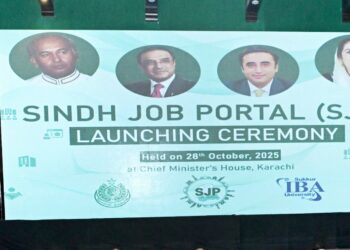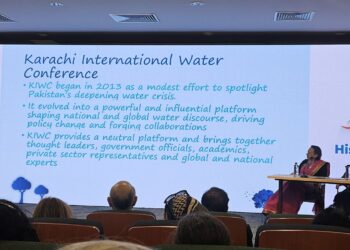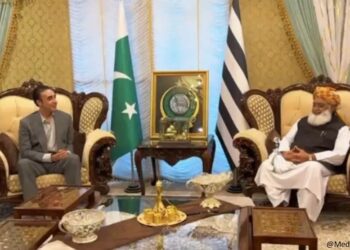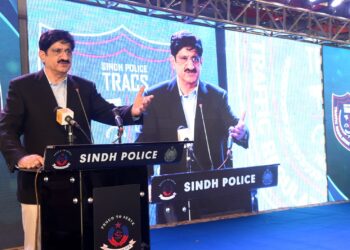APP
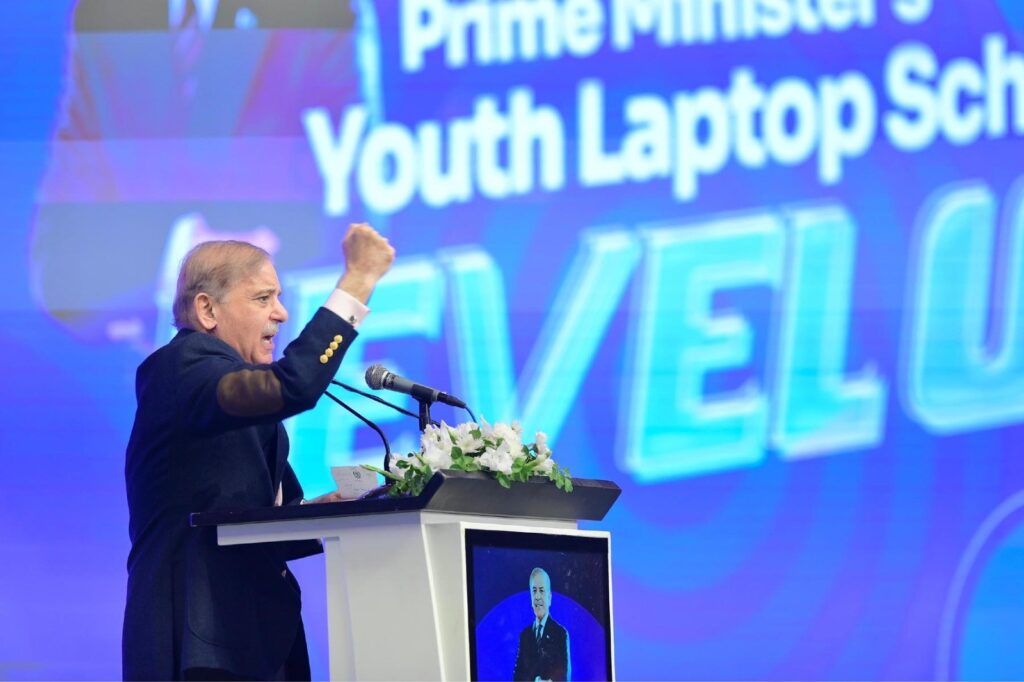
Islamabad: Prime Minister Shehbaz Sharif on Thursday inaugurated the fourth phase of the Prime Minister Youth Laptop Scheme 2025, reaffirming his government’s resolve to invest in education, technology, and skill development for Pakistan’s youth.
Addressing the ceremony, attended by Chairman Prime Minister’s Youth Programme Rana Mashhood Ahmad Khan, senior officials, students, and alumni, the prime minister said the initiative marked “a historic day in Pakistan’s journey of youth empowerment.”
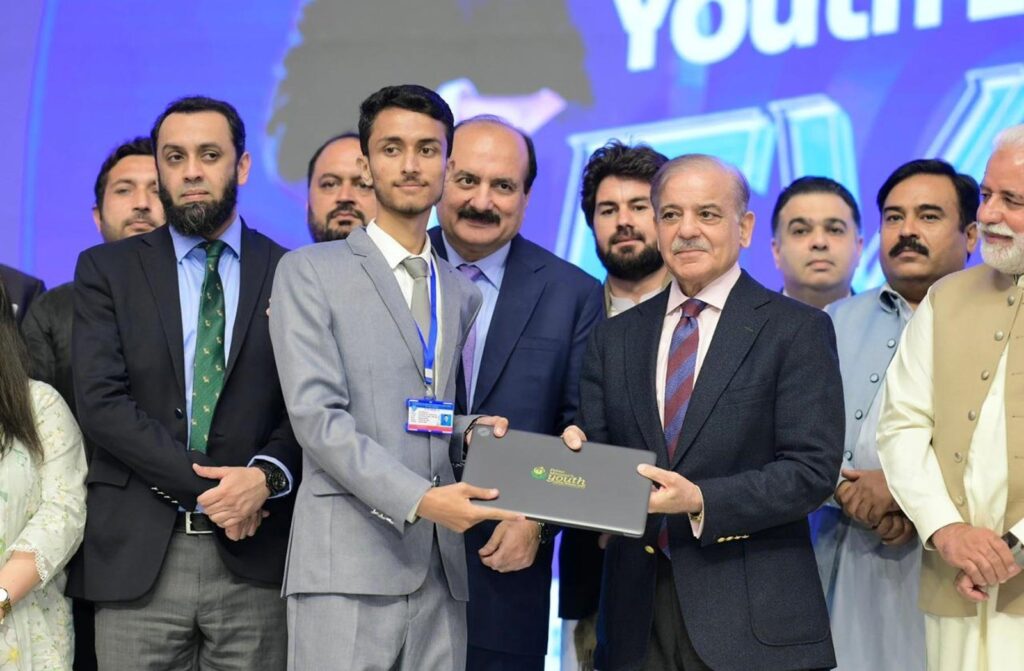
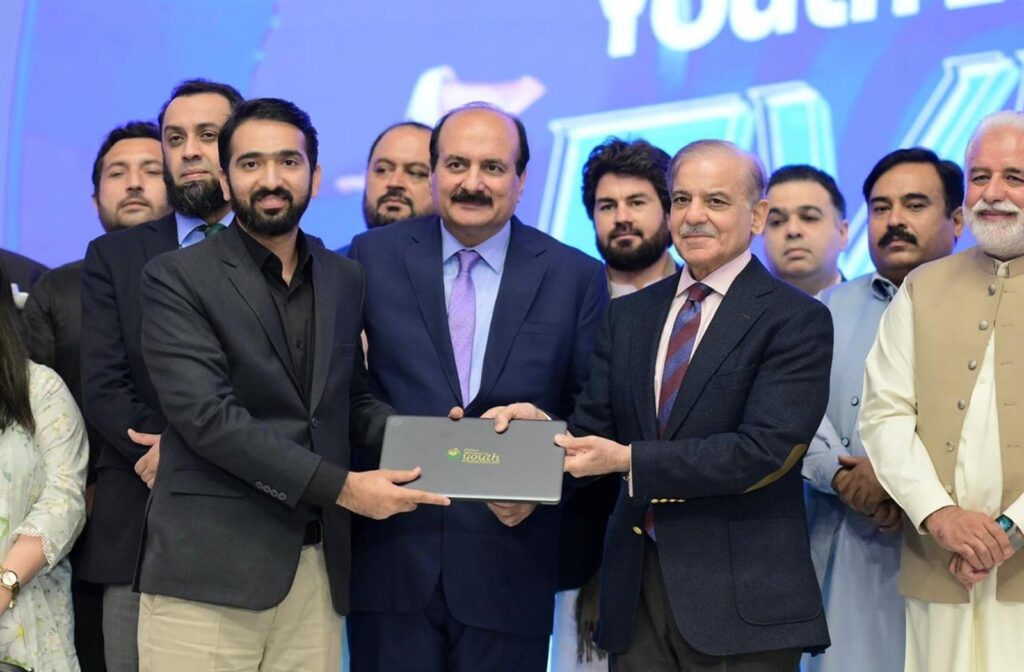
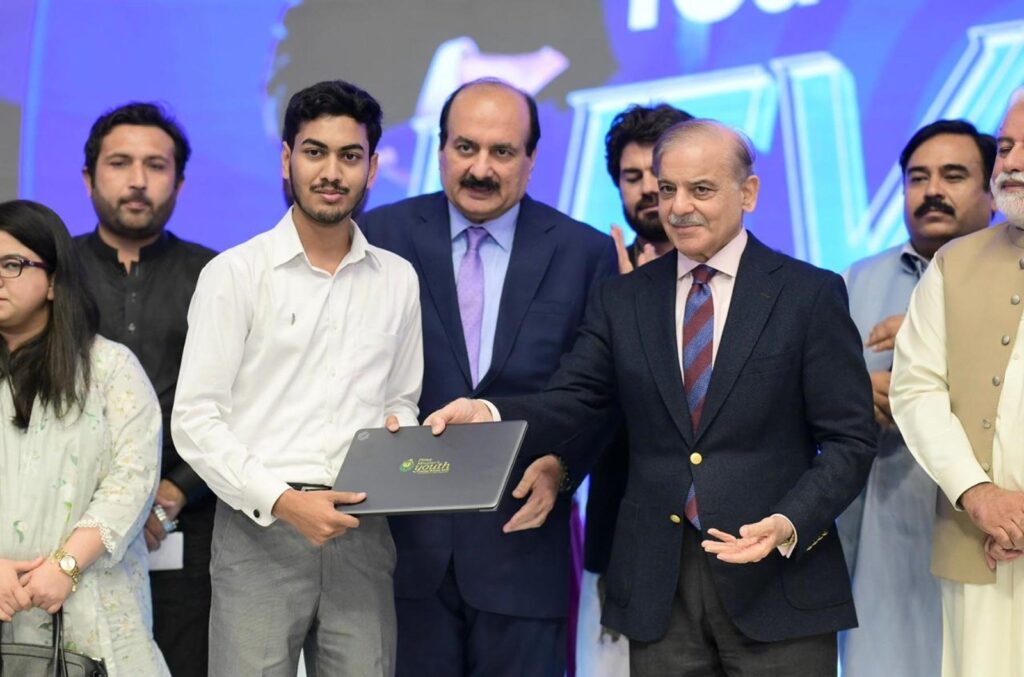
Shehbaz Sharif said the scheme reflected his longstanding vision, first launched in 2010 as Punjab’s chief minister, to promote education, information technology, fine arts, and sports. Despite economic challenges and natural disasters, he noted, “not a single penny was cut from youth development funds because education and empowerment are our top priorities.”
He revealed that over 100,000 laptops have been distributed purely on merit since 2011, with a cumulative investment of Rs40–50 billion, while the government is allocating Rs500 billion for youth education, skills, and empowerment. “This is not an expense but an investment in Pakistan’s destiny,” he added.
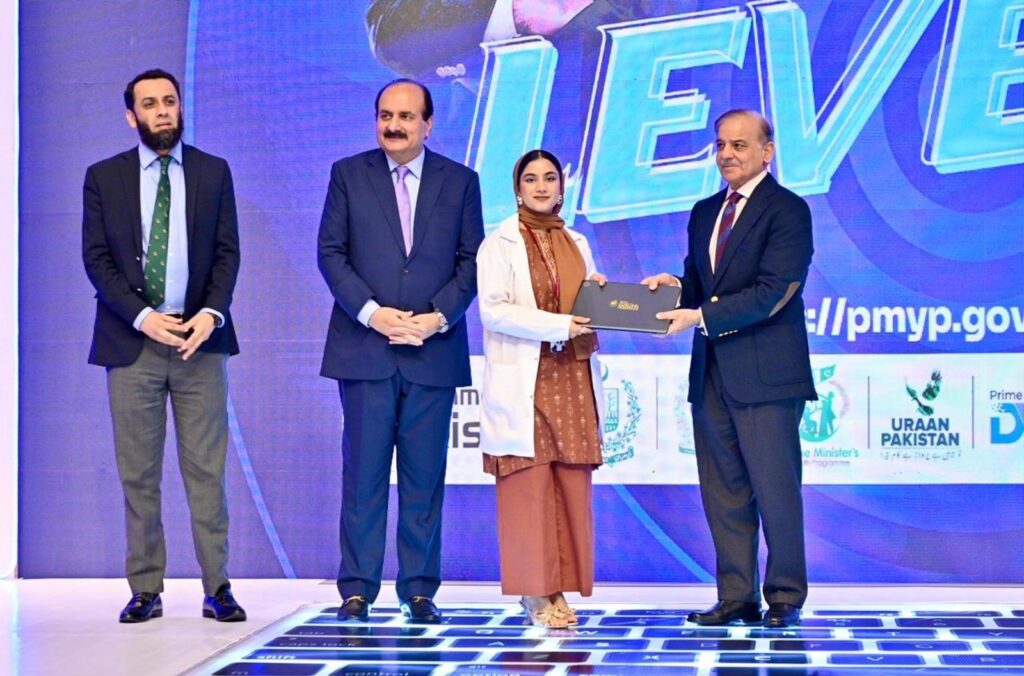
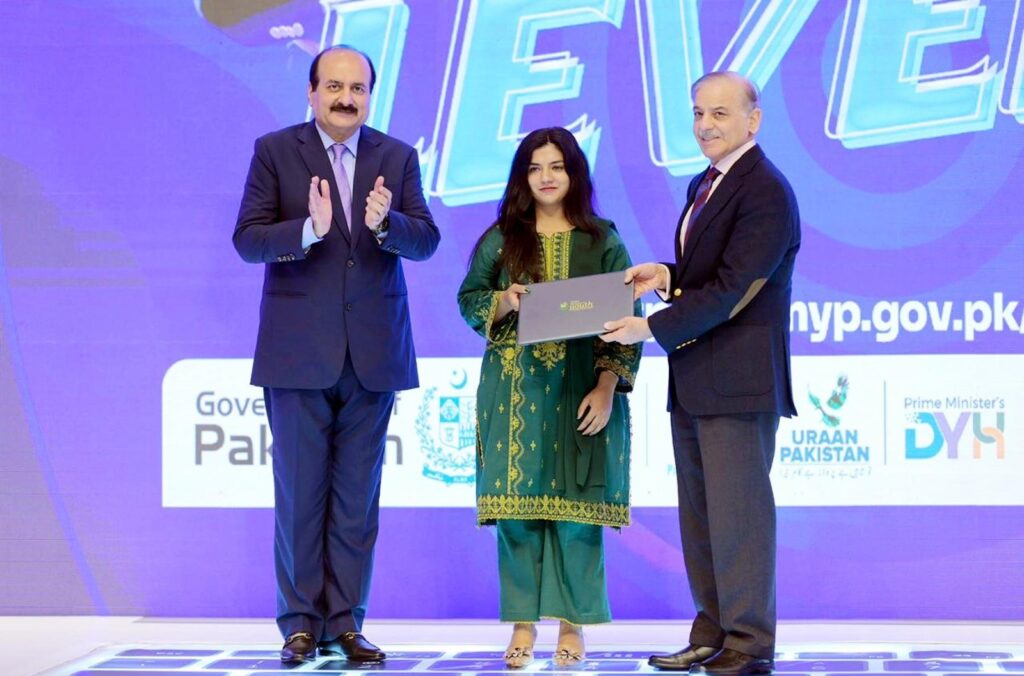
Highlighting the country’s emerging technological capacity, the prime minister said Pakistan was “among the few nations working on an Artificial Intelligence policy and stepping into semiconductor manufacturing.”
He announced a partnership with Saudi Arabia to provide advanced training for Pakistani youth in AI, IT, and modern trades, noting that Riyadh’s Vision 2030 will create millions of jobs requiring skilled workers. “Our youth will be Saudi Arabia’s partners in progress,” he said, thanking Crown Prince Mohammed bin Salman for supporting Pakistan’s economic stability and offering training opportunities.
“This programme is not for personal glory but for our young citizens who are the future architects of Pakistan,” he said. “Our youth will not only touch the stars; they will reach beyond the galaxies.”
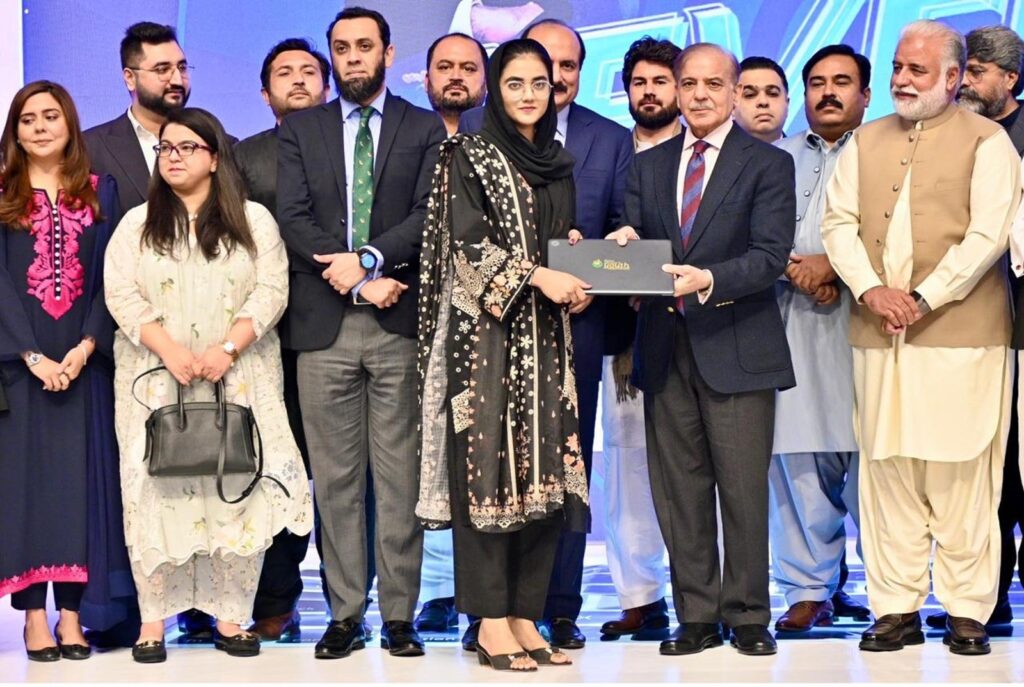
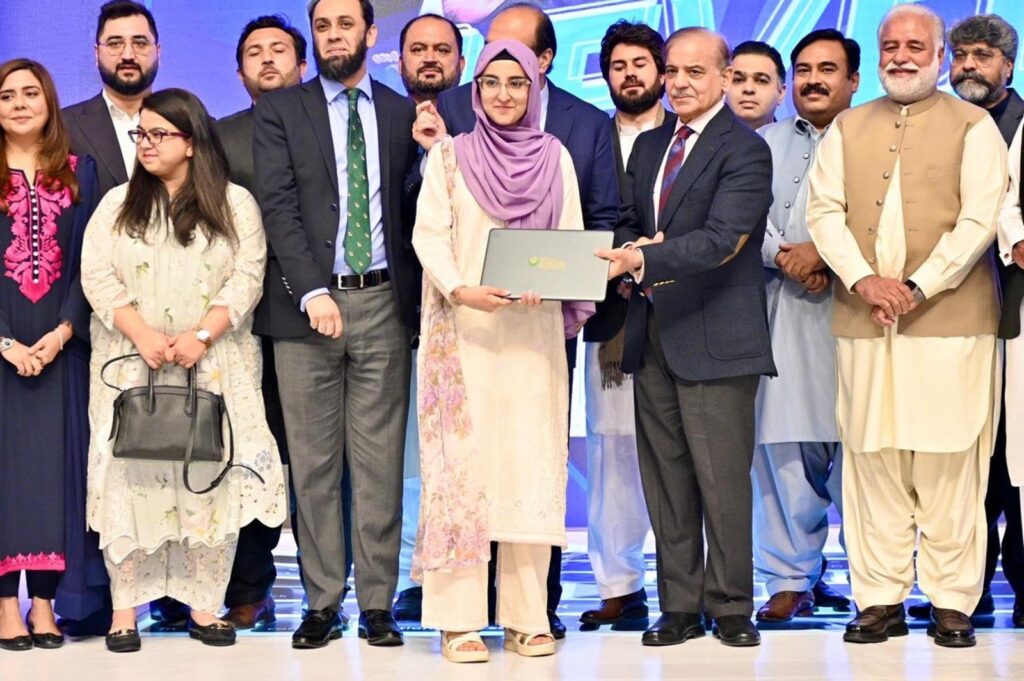
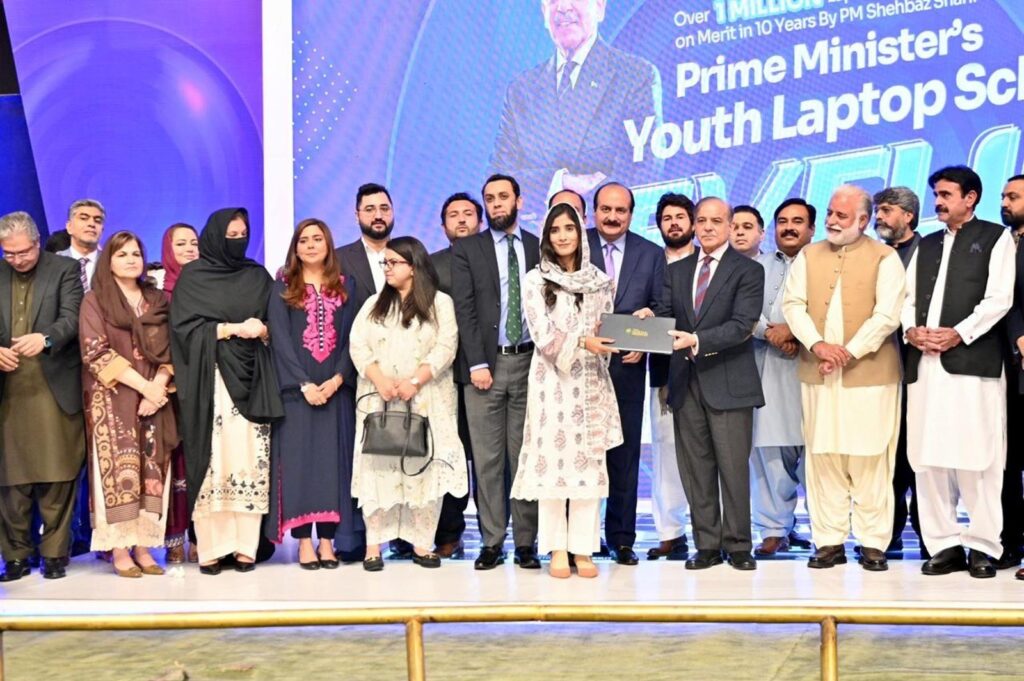
Chairman Rana Mashhood Ahmad Khan lauded the prime minister’s continued commitment, calling the laptop initiative “a movement to transform Pakistan into a knowledge-based economy.” He said the programme, supported by both civilian and military leadership, demonstrated “a shared national commitment to education, employment, and innovation.”
Mashhood added that the laptops had connected youth from remote areas of Balochistan, FATA, and Gilgit-Baltistan to the world of knowledge and innovation.
Students from across Pakistan also shared their success stories, crediting the scheme for enabling digital learning, entrepreneurship, and academic excellence. From Balochistan to Khyber Pakhtunkhwa, several alumni described the laptops as “tools of empowerment” that helped them launch careers in education, e-commerce, and digital design.
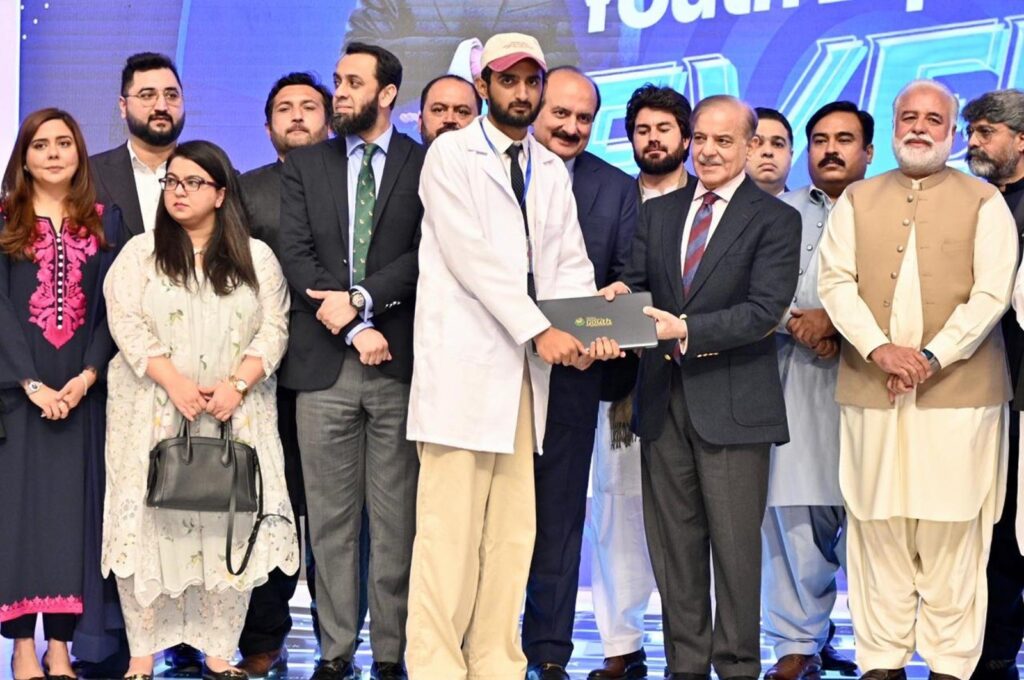
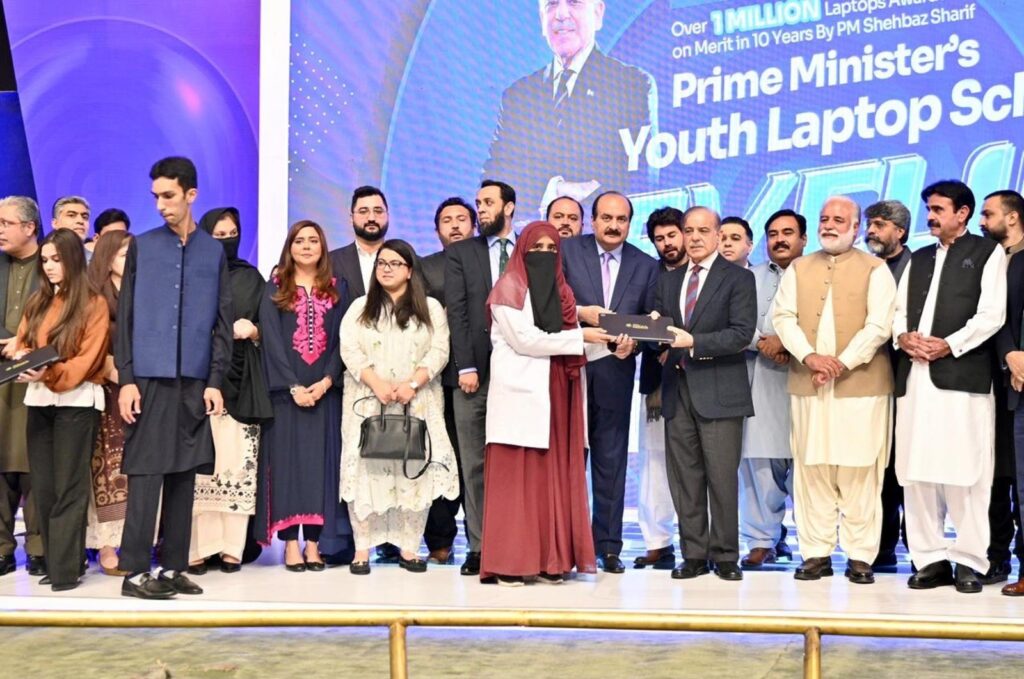
As the ceremony concluded, Prime Minister Shehbaz Sharif paid tribute to teachers, parents, and students, saying Pakistan’s strength lay in its educated and empowered youth.


